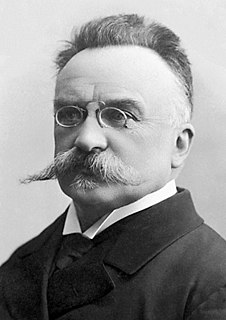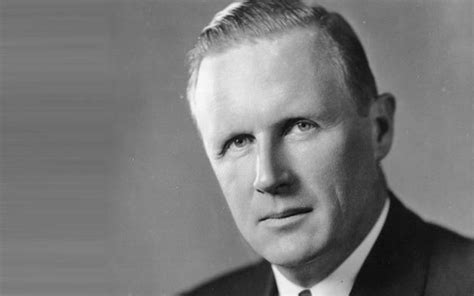A Quote by Charles Albert Gobat
If we examine the Hague Convention carefully, we see that it considers the offer of good offices a duty of every nation. In other words, such offers should be made whenever a dispute becomes critical and threatens to explode into war.
Related Quotes
In a general view, there are few conquests that repay the charge of making them, and mankind are pretty well convinced that it can never be worth their while to go to war for profit's sake. If they are made war upon, their country invaded, or their existence at stake, it is their duty to defend and preserve themselves, but in every other light, and from every other cause, is war inglorious and detestable.
As a peace machine, it's value to the world will be beyond computation. Would a declaration of war between Russia and Japan be made, if within an hour there after a swifty gliding aeroplane might take its flight from St Petersburg and drop half a ton of dynamite above the enemy's war offices? Could any nation afford to war upon any other with such hazards in view?
I think, for the good of the country and the fact that you don't want a question coming up every time there's a decision made, [Donald Trump] should basically take himself out of it and just be a passive participant in the sense that he has no decision-making, no involvement and no decisions get made separate from him. Which is the way the way it's done for more Cabinet offices. Or I think all Cabinet offices.
Remember that every government service, every offer of government - financed security, is paid for in the loss of personal freedom... In the days to come, whenever a voice is raised telling you to let the government do it, analyze very carefully to see whether the suggested service is worth the personal freedom which you must forgo in return for such service.
Part of America's industrial problems is the aim of its corporate managers. Most American executives think they are in the business to make money, rather than products or service. The Japanese corporate credo, on the other hand, is that a company should become the world's most efficient provider of whatever product and service it offers. Once it becomes the world leader and continues to offer good products, profits follow.
Children who wish to become good and great men or good and noble women, should try to know well all the people whom they meet. Thus they will find that there is no one who has not much of good; and when they see some great folly, or some meanness, or some cowardice, or some fault or weakness in another person, they should examine themselves carefully. Then they will see that, perhaps, they too have some of the same fault in themselves - although perhaps it does not come out in the same way - and then they must try to conquer that fault.
Every subject's duty is the King's; but every subject's soul is his own. Therefore, should every soldier in the wars do as every sick man in his bed, wash every mote out of his conscience; and dying so, death is to him advantage; or not dying, the time was blessedly lost wherein such preparation was gained; and in him that escapes, it were no sin to think that, making God so free an offer, He let him outlive the day to see His greatness and to teach others how they should prepare.
In the formation of such a government, it is not only the right, but the indispensable duty of every citizen to examine the principles of it, to compare them with the principles of other governments, with a constant eye to our particular situation and circumstances, and thus endeavor to foresee the future operations of our own system, and its effects upon human happiness. Convinced of this truth, I have no apology to offer for the following remarks, but an earnest desire to be useful to my country.




































